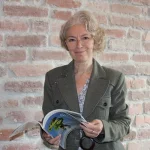
While age is one of many factors taken into account by admissions committees, the general message seems to be: don’t procrastinate!
We spoke with Philippe Oster, Communications, Admissions and Development Director for the HEC Paris MBA, and Megan Lynam, MBA Admissions Director at Duke University’s Fuqua School of Business.
The HEC Paris full-time MBA is currently ranked 21st in the world by the FT, and Duke-Fuqua’s is ranked 18th.
Philippe said that there are three major factors that come into play when deciding on the best time to apply for an MBA: career progression, your personal situation and preparation.
Career progression
This is all about why people want to do an MBA in the first place. They generally fall into three camps. The first group are people who like their sector, but there’s a glass ceiling and they think they will hit it in two or three years.
A second group think the company or industry they are in will encounter difficulties in the next few years. Both of these camps should apply for an MBA as soon as possible, before events take over and their careers stagnate for reasons beyond their control.
The third, and biggest, group are the “deep career switchers”. These are people who want to change function, sector, geography or their language of work. The right age range for this kind of career switch is 25 to 35 years: “After the age of 35 it becomes more difficult (though not impossible) to make a deep career switch, generally due to family and personal situations,” said Philippe.
Personal situation
As you get older, it gets much harder in logistical terms to pursue a top-ranked full-time MBA. Taking on a loan to fund your education is a lot harder if you already have mortgage debt. It’s also much harder to move to a different city or country if you have a family, though a “good proportion” of international students at HEC Paris have kids and have still benefited from an enriching experience, enhancing their career prospects said Philippe.
He believes the change is indeed possible, but may require more effort due to family ties. Young families are more geographically mobile than families with older kids.
Preparation
Don’t underestimate just how long it takes to prepare your business school application effectively. Three or four years ago it would take around two years from the time a prospect started enquiring about an MBA to the time he or she actually applied. The average time has now shortened to 1.5 years, said Philippe, so you have less time to cover all the bases.
All the global top 25 MBA programmes offer outstanding content and delivery, professional career support and international networking and access. However, it takes time to refine that list down to the four that are right for you. Philippe believes candidates are likely to find a maximum of four schools they share a truly close match with.
This process includes meeting school representatives, connecting with alumni, visiting the school to get a feel for the atmosphere and perhaps even participating ain a weekend or one-week taster course.
GMAT preparation
This is the other major hurdle. You should get your GMAT out of the way as early on as possible, because your result might make you re-think the business schools you are going to apply to, Philippe said.
Once the GMAT and other mandatory tests, e.g. the English language test, are out of the way, you can concentrate on refining your application essays and interview practice.
The final time-consuming element of preparation is getting your finances in place. It’s a decision people make “jointly with their family,” said Philippe. Scholarships and loans have their own lead time, so take that into account too.
Financing an MBA
This is generally less of an issue for Part Time candidates, stated Philippe, “as Part Time MBAs continue to work for their employers, making the funding process much smoother.”
The oldest student currently on the HEC Paris MBA is 37. He’s a French army officer who wants to return to the army and progress to the senior ranks, and is taking advantage of a special agreement between HEC Paris and the French army to educate high flyers
The youngest student is 24. A US national who graduated from university age 21, Philippe said she started working very young, and therefore met the requirement of a minimum of three years of work experience.
She also had “no problem whatsoever” with the GMAT.
Normally people of these ages would be “marginal” candidates for the HEC Paris MBA, but both demonstrated that they could be successful, add to the class and had clear reasons for doing the MBA.
Philippe returned to the issue of making a career switch. You really need a programme with a significant length to achieve this. That’s when you benefit from the intensive careers support, the opportunity to do an internship and the learning experiences that will transform you professionally and personally.
When we spoke, Philippe was due to take the 2013 MBA class to a training centre for higher officers of the French army in Brittany. The two and a half day course is mandatory, and applies the best leadership and decision-making expertise from the army to business problems.
“Before we go, a lot of people are anxious, wondering what will be in store for them,” said Philippe. “But after the session they’re saying, ‘Wow’! The way they make decisions has changed concretely.”
Speaking about students on Executive MBA programs, Philippe believes “It’s a different mind-set. Students on executive programs are not always motivated by deep career transformations.
“They’re looking for career progression, often their firms are paying and they’re not looking for new roles’’.
“On an effective MBA program, whether Full Time or Part Time, you will get a 360 degree overview of business before specialising and adding colour to your MBA.”
Philippe encourages candidates to discuss their objectives with members of the admissions team to ensure that they are aware of both formats of the MBA, and the Executive MBA, finding the perfect program for each individual candidate.
Duke Fuqua Admissions Director Megan Lynam told us that Fuqua does not have a minimum or maximum age for its full-time MBA program: “What we are seeking to understand from our applicants is why NOW is the right time for them to apply to business school and what, based on their experiences, they will bring to our classrooms and our community.”
The school has had students in their 40s and even 60s participate in the program over the years!
What’s important, said Megan, is that there is solid rationale for that particular program format, and that the applicant’s expectations are aligned with the cohort and career opportunities that are available to those graduating from the program.
She added, “At Duke, we are committed to providing advanced business education, regardless of someone’s stage in their career and life circumstances.”
“This has led us to develop a portfolio of innovative programs, including our Master of Management Studies program for those just launching their careers; our Cross Continent MBA program for those who have a great start to their career and don’t want to leave their jobs for a full-time program; and our Global Executive MBA program for those who have well-established careers and are seeking a broader foundation of skills and a network of peers to help them as they lead their companies and business units.”
Check out: The MBA Age Range: Are You Too Young or Too Old For an MBA?
Source: BusinessBecause.com



Comments